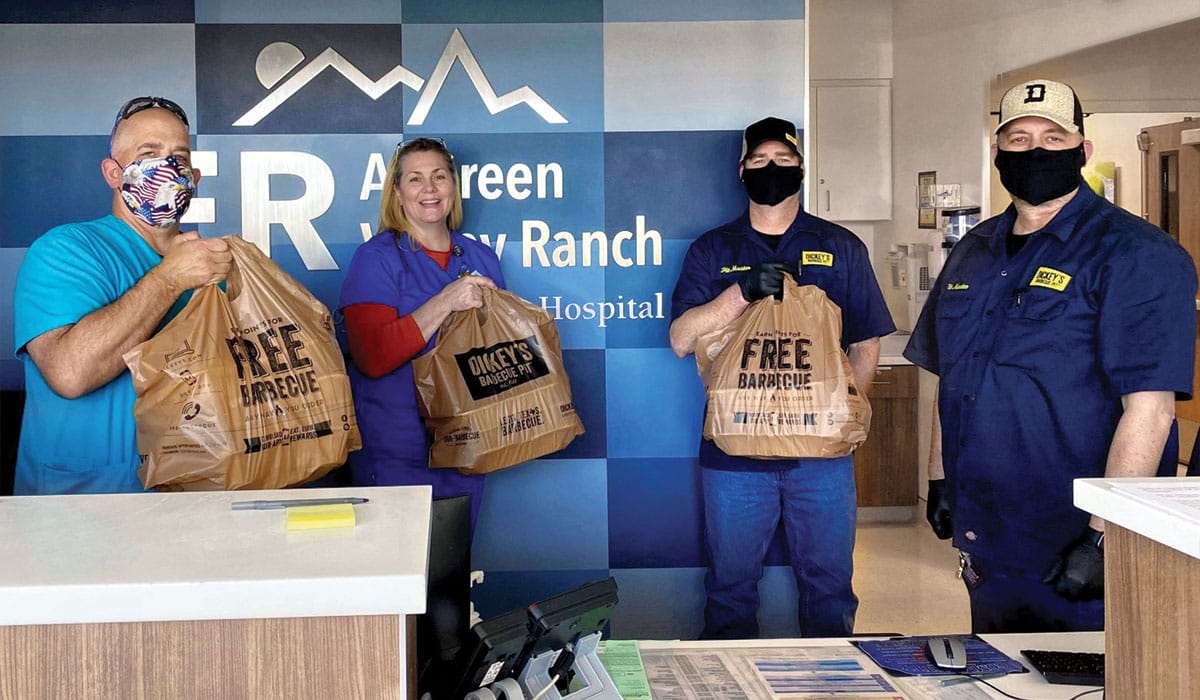Franchisors and franchisees are accustomed to navigating a rapidly changing industry together, but nobody could have prepared them for the financial challenges of COVID-19.
Over the past few months, brand leaders and store owners have had no shortage of complicated processes to sort out, ranging from negotiating rent payments to wavering royalty fees, and from how and when to apply for PPP and SBA loans to the very basic yet no less daunting question of, “So where do we go from here?”
Franchisees caught a break when many states granted extensions in filling out Franchise Disclosure Documents (FDD), but that didn’t exactly absolve brands from having to do them eventually. Furthermore, the FDDs brought with them a challenge that has been constant during the past few months: navigating the different rules and regulations across the country, some of which varied widely from state to state.
Take Playa Bowls, a concept with 84 locations across 13 East Coast states and one location in Puerto Rico. Cofounder Robert Guiliani and vice president of business development and operations Gary Moss estimate that the brand’s daily phone-call tally went up from about 20 per day to 50 per day at the peak of the pandemic. But communication with franchisees was less frequent, and that was deliberate, Moss says.
“We didn’t want to make commitments or disseminate information that we didn’t first understand ourselves,” Moss says. “So some of the time it might have felt to franchisees like we were being a bit slow, but other times we were talking to them and looping them in several times per day, and the key was that we refused to put them in a place where they were hearing from us something we couldn’t verify to be true.”
The team spent hours on the phone with financial resources, who explained the process of applying for PPP loans. Every single Playa Bowls location applied, with many receiving loans just a week or two later.
“We were constantly in touch with financial advisors about the parameters of these loans because we wanted our franchisees to know exactly what they were signing up for,” Guiliani says. “We helped our franchisees understand that if they weren’t going to use it for payroll, that they could instead use it as a low-interest loan, and we encouraged some to do that.”
One of the issues Playa Bowls’ corporate office grappled with internally was the handling of franchise royalties in March, and then April. Leaders ultimately decided to offer franchisees the option to defer up to 66 percent of their monthly royalty fee, an option that Guiliani says received positive feedback from franchisees.
In the end, different franchisees took different approaches to the fees; some deferred payment, others paid partial amounts, and still others paid in full.
“One of the things we realized is we have to take care of our house in order to make sure there is a business here when things start to return to normal,” Moss says. “It just wasn’t going to work in our franchise system to waive those fees completely. It was a bit like the 85 landlords we have in our portfolio; they all had differing answers for when rent had to be paid, and how much had to be paid, but they all knew they needed some type of cash flow, and we understood that.”
Dickey’s Barbecue Pit has a wider footprint than Playa Bowls, with more than 500 locations across 46 states, but the chain wrestled with the same questions. CEO Laura Rea Dickey and her team decided to cut royalty payments in half for eight weeks.
“People needed cash flow to deal with the immediate fallout,” Dickey says.
That, paired with the PPP loans that many of the brand’s franchisees received, has helped keep up momentum for Dickey’s during trying times. Dickey reports that the 150-plus members of the brand’s corporate staff all remained employed despite the 50 percent reduction in franchise royalties. This was a boon to franchisees, as it was the finance staff who oversaw the loan logistics and helped walk franchisees through the myriad loan-related questions that consumed the industry.
For Coolgreens, an 11-unit fast casual based in Oklahoma, these questions and other financial challenges fell to CEO Robert Lee and vice president of operations, Amanda Powell, who doubled as the financial advisers for the brand’s five franchisees.
“It’s funny, if you talk to people or go online right now, there’s so much discussion about what people are binge-watching on Netflix,” Lee says. “But a lot of us in the industry are spending double and triple time with franchisees, talking them through these different initiatives and applications for small-business loans.”
As COVID-19 spread, Lee immediately made the decision to suspend all royalty payments. At the beginning of May, the brand wasn’t sure if those payments would be deferred or waived. Lee and his team instead went to work on things they might immediately control: figuring out when rents were due and establishing a strategy for moving forward, with particular attention on a location that opened in March and was not eligible for government loans.
Lee says he found landlords to be generally amenable to negotiating some kind of deal that at least deferred rent, or cut payments down a bit. And when it comes to this year’s FDD, Lee says he is hopeful that potential franchisees or investors will be able to contextualize the information.
“We’re going to report the numbers for what they are, and hope people understand,” Lee says. “We can’t make excuses for why it happened, because it’s something that was out of our control. All we can do is work through this with our team, franchisees, and ground level employees, and hope for the best.”

